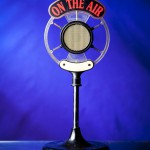 When creating a PR strategy for your business, radio often gets overlooked in favour of gaining media coverage on TV, print or online publications.
When creating a PR strategy for your business, radio often gets overlooked in favour of gaining media coverage on TV, print or online publications.
However radio is a great medium to promote your business and reach your target audience.
Radio programs usually have a specific audience of listeners, which allows you to communicate directly to your customers, clients or a niche group of people.
Pitching to radio is different than pitching to TV or print media because the news cycle is quicker, they have other sections or segments and the journalists have different roles.
Here are some tips to help you pitch to radio.
Have a newsworthy story
To be featured in a radio interview you need to have something newsworthy or interesting you can discuss. Maybe you are an expert on a topic that is currently in the news or maybe your business is doing something really exciting a journalist would be interested in. Your topic must appeal to the program’s target audience and conform to the topics they usually discuss.
Know the segments
Do some research into the radio programs your target audience listens to and get to know more about it. Some radio stations have specific segments you can pitch to for example there may be a gardening or business segment.
Most radio stations have breakfast, morning, afternoon, and drive shows, so if your story is news related these segments are a good place to pitch to.
Who to pitch to
You need to find out who the best person is to pitch your story to, to ensure it will be considered. In most cases this will be the program producer rather than the host of the show as they are involved in planning the show’s content.
If you don’t have access to a media database you can find out who to pitch to by calling the radio station’s switchboard and asking for the name and contact details of a specific producer.
How to pitch
In most cases it’s better to pitch to a radio producer with a phone call rather than an email. Radio journalists tend to work at a very fast pace and your email may become lost.
When pitching to a journalist you need to explain why you would be a great person to interview. You also need to explain why your interview would be of interest to the program’s listeners.
When doing phone pitches make sure you practice beforehand and write down what you are going to say. You have a better chance of success if you appear confident, knowledgeable and get your point across quickly. If you stumble for words and don’t know what you are going to say a journalist may lose interest.
How to follow-up
It’s a good idea to follow-up your phone call with an email straight away to further explain your pitch and why it’s relevant and interesting for their listeners.
Here are some things you should include in your pitch and follow-up email:
- Your credentials.
- The topics you can discuss during the interview.
- Why your topic is newsworthy or of interest to the target audience.
- Your availability for interviews.
- Your contact details.
Pitch at the right time
Timing is everything. If you catch a journalist at the wrong time they will be unlikely to listen to your pitch. Never call a radio journalist during a live broadcast or while they are on air (unless it’s talkback). Journalists will be too busy at this time and you will just annoy them.
Know what times the radio program airs and make your call before or shortly after the broadcast ends.
By including radio in your business’s PR strategy you can reach your target audience, promote your business and increase your media exposure.
Want more PR tips? Download this free ebook
Sydney Public Relations Agency, CP Communications provides specialist media, traditional and online PR strategies that get amazing results. Contact us today. For more great tips visit our website www.cpcommunications.com.au.

